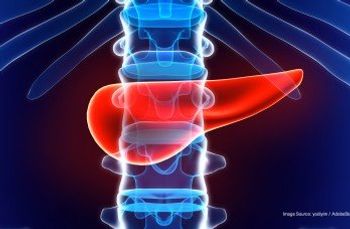
FDA Approves PD-L1 IHC 22C3 pharmDx as Companion Diagnostic for Pembrolizumab
The FDA approved the use of PD-L1 IHC 22C3 pharmDx as an aid in identifying patients with triple-negative breast cancer who may be appropriate for treatment with pembrolizumab (Keytruda).
The FDA has approved the use of PD-L1 IHC 22C3 pharmDx as an aid in identifying patients with triple-negative breast cancer (TNBC) who may be appropriate for treatment with pembrolizumab (Keytruda), according to Agilent Technologies, the developer of the companion diagnostic.
Currently, PD-L1 IHC 22C3 pharmDx is the only companion diagnostic that is FDA approved to assist in the identification of patients with TNBC who would benefit from treatment with pembrolizumab in combination with chemotherapy.
Pembrolizumab with chemotherapy is approved for patients with locally recurrent unresectable or metastatic TNBC whose tumors express PD-L1 (Combined Positive Score (CPS) ≥ 10) as determined by an FDA approved test.
PD-L1 expression is a crucial biomarker for response to anti-PD-1 therapies like pembrolizumab. The expanded use of PD-L1 IHC 22C3 pharmDx now strengthens the ability of pathologists to identify patients who may be eligible for treatment with pembrolizumab.
"Anti-PD-1 therapies, including [pembrolizumab], continue to offer new treatment options for a growing population of cancer patients," Nina Green, vice president and general manager of Companion Diagnostics at Agilent, said in a press release. "With the expanded FDA approval of PD-L1 IHC 22C3 pharmDx in TNBC, physicians will be able to access critical information to qualify even more patients who could benefit from these treatments. This new approval reinforces Agilent’s role as a worldwide leader in developing companion diagnostics for targeted therapies."
TNBC marks the seventh cancer type for which PD-L1 IHC 22C3 pharmDx has gained FDA approval. PD-L1 IHC 22C3 pharmDx also helps physicians identify patients with non-small cell lung cancer (NSCLC), gastric or gastroesophageal junction (GEJ) adenocarcinoma, esophageal squamous cell carcinoma (ESCC), cervical cancer, urothelial carcinoma, and head and neck squamous cell carcinoma (HNSCC) who would benefit from treatment with pembrolizumab.
Reference:
Agilent Receives Expanded FDA Approval for PD-L1 IHC 22C3 pharmDx in Triple-Negative Breast Cancer [news release]. Santa Clara, California. Published November 13, 2020. Accessed November 16, 2020. https://www.agilent.com/about/newsroom/presrel/2020/13nov-ca20029.html
Newsletter
Stay up to date on recent advances in the multidisciplinary approach to cancer.












































